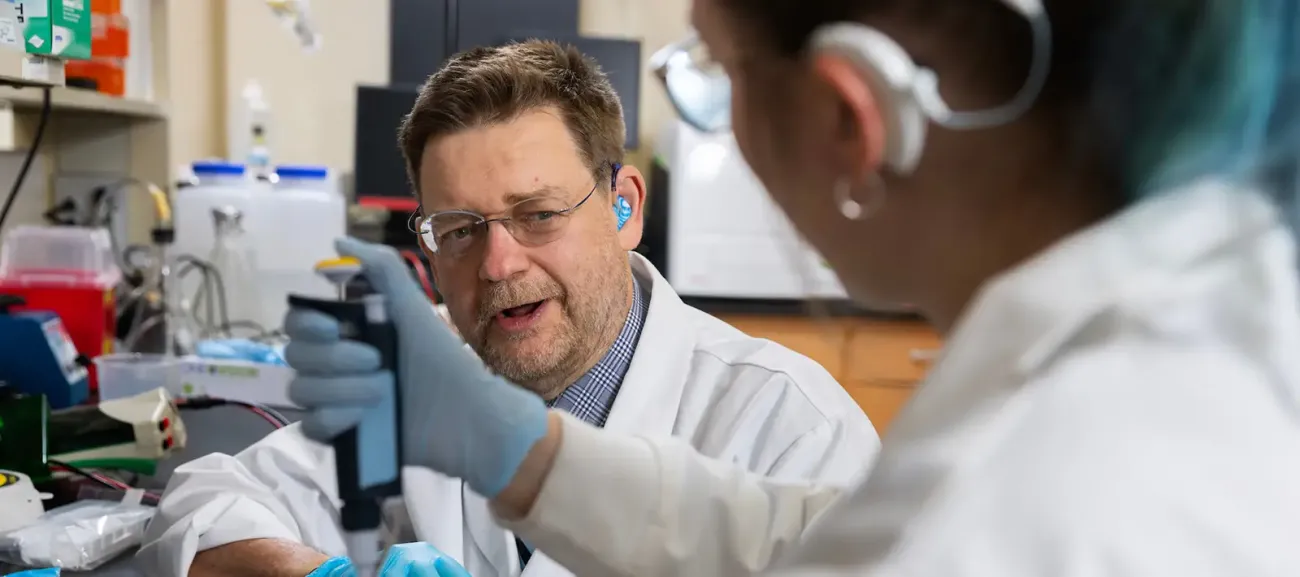
Creighton professor Peter Steyger, PhD, earns $1 million NIH grant

Creighton is known for its academic excellence, cutting-edge research and Jesuit values. But if you conducted a purely unscientific survey, “family” and “community” are two words that would also surface. Repeatedly.
So, when the National Institutes of Health (NIH) awarded Peter Steyger, PhD, professor of biomedical sciences and director of the Dr. Richard J. Bellucci Translational Hearing Center, a $1 million research grant, Steyger was thrilled. But his excitement wasn't solely about advancing his research on hearing loss and vestibular disorders.
Thanks to the grant, Creighton will welcome two new graduate students who live with hearing loss to campus for the 2025-2026 academic year. Students with good academic progress will receive support for at least four years, including tuition, insurance, fees and stipends.
In true Creighton fashion, Steyger says the award is also important because it will create a sense of belonging for the graduate students it funds. He understands first-hand their struggles with hearing loss.
The NIH partners with the National Institute on Deafness and Other Communication Disorders to award the grant. It aims to support research education activities that encourage individuals from diverse backgrounds to pursue further studies or careers in research. This includes those who are underrepresented in biomedical and behavioral sciences.
He believes welcoming the two new students to his lab will accelerate breakthroughs in hearing loss research. A “lived experience of hearing loss (or any other disability or minorized status) brings a different perspective that is overlooked by those with neurotypical sensory abilities,” he says.
For Steyger, diversity includes individuals with physical disability. “Disability cuts across age, gender, sexuality, race, religion, etc.,” he says.
This perspective is particularly valuable in the health professions, especially medicine, which Steyger describes as “notoriously ableist.”
Medical professionals, including future physicians, possess extensive knowledge about the human body’s functions. Steyger maintains that healthcare professionals need to broaden their understanding of what differently abled individuals can achieve. This is especially true for those who are neurodivergent.
“Including people with different abilities, who are adept at dealing with adversity, can positively impact the character of our healthcare programs by increasing understanding of and compassion for those who possess different physical capabilities,” says Robert “Bo” W. Dunlay, MD'81, dean of Creighton’s School of Medicine. “As educators, our goal is to help everyone reach their full, God-given potential, always.”
Steyger recognizes the challenges of being a person with hearing loss in a mostly hearing world. The need to constantly prove oneself, educate others about the challenges of hearing loss and maintain an extra level of drive and focus can be exhausting.
He sees the cohort as a community that will help make those with hearing loss feel less alone. It will feed their spirits as well as their intellects.
Watch for news about how this grant will help as our new graduate students start at Creighton in the 2025-2026 school year!




